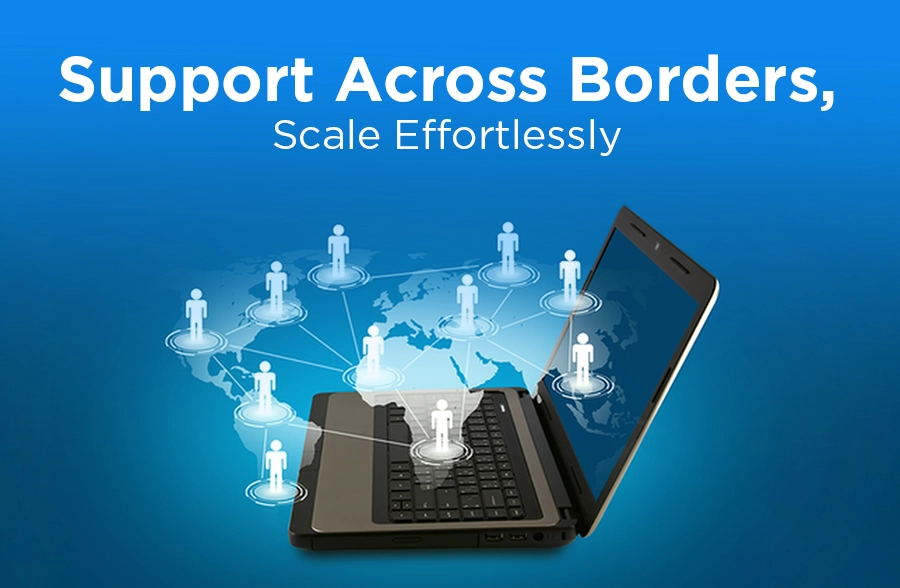Schedule a FREE call with our outsourcing expert now and get a precise quotation that meets your requirements. Don't wait - get started today!
When it comes to running a business, success isn’t just about hard work; it’s about smart choices. Outsourcing BPO is one of those choices. Imagine freeing yourself from the tasks that drain your energy by putting them in the hands of experts who do it better, allowing you to focus on what really matters: growing and innovating your business.
When you outsource BPO, you gain the time, resources, and expertise to scale faster and smarter. Ready to understand how outsourcing BPO works for your business? Outsourcing BPO meaning explained—let’s break it down!
What is Outsourcing? A Brief History and Meaning
Outsourcing is the practice of delegating certain business functions or processes to external providers. The term “outsourcing” emerged in the 1980s as companies began to move non-core activities like IT support, customer service, and manufacturing to third-party providers. Historically, outsourcing started as a way for businesses to reduce costs by hiring cheaper labor abroad, but over time, it evolved to become a strategic tool for improving efficiency, innovation, and scalability.
Today, outsourcing has become a mainstream business practice, with organizations across the globe relying on external partners to handle tasks ranging from administrative functions to complex technical support. The goal of outsourcing is not only to cut costs but also to tap into specialized skills, enhance operational efficiency, and enable internal teams to focus on core business activities.
Challenges Faced in BPO and How to Overcome Them
Outsourcing BPO offers numerous advantages, but it also presents certain challenges. Here are common issues businesses face when outsourcing and ways to tackle them:
-
Communication Barriers
Whether outsourcing offshore or to neighboring countries, language differences and time zones can make communication difficult.
How to Overcome: Choose a provider that aligns with your language requirements and communication needs. Establish clear communication protocols and regular meetings.
-
Loss of Control
Outsourcing parts of your business means giving up direct control over certain processes.
How to Overcome: Implement a solid service level agreement (SLA) that defines expectations, performance metrics, and responsibilities to ensure quality and accountability.
-
Cultural Differences
When outsourcing offshore, cultural differences can influence how work is done, potentially leading to misunderstandings.
How to Overcome: Be sure to work with a BPO provider who understands your business culture and values transparency and alignment. Studies show that fostering cultural alignment leads to 42% fewer errors in task execution.
You can avoid setbacks and ensure smooth operations by addressing these challenges early and choosing the right BPO provider.
Common BPO Mistakes That SMEs Should Avoid
As beneficial as outsourcing can be, many SMEs make mistakes that lead to poor results. Here are a few things to keep in mind when considering BPO:
- Focusing solely on cost: While cost is important, it shouldn’t be the only factor in choosing a BPO provider. Look for a partner who offers value and high-quality services.
- Lack of proper communication: Regular check-ins, feedback, and transparency are essential for successful collaboration.
- Unclear expectations: Set clear, measurable goals and service standards with your BPO partner to ensure success.
By avoiding these mistakes, you can maximize the benefits of outsourcing BPO.
How to Transition to a BPO Model: Steps and Best Practices
Switching to a BPO model can seem daunting, but with the right strategy, it can streamline your operations and improve business performance. Here’s a guide to making a successful transition:
1. Evaluate Your Needs
The first step is to assess which business functions are non-core but essential. For example, outsourcing customer service or IT support can help your team focus on core competencies like product development or marketing.
2. Choose the Right BPO Provider
Whether it’s offshore outsourcing or selecting a provider in a neighboring country, make sure they specialize in your required services. For instance, if customer service is a priority, ensure they have a proven track record in managing call center operations.
3. Set Clear Expectations
Define key performance indicators (KPIs) and create a service level agreement (SLA) that includes all expectations, timelines, and performance metrics. This ensures you and the provider are on the same page.
4. Focus on Integration
When transitioning, ensure that the outsourced team integrates seamlessly with your internal team. Regular communication, training, and feedback help build trust and collaboration between in-house and outsourced teams.
5. Monitor and Review
Once the transition is complete, continuously monitor the performance of the outsourced function. This allows you to make necessary adjustments and improvements.
By following these steps, your transition to a BPO model will be smooth, helping you unlock efficiencies and improve your business operations.
Important Questions to Ask When Choosing a BPO Partner
When selecting a BPO partner, asking the right questions is essential to ensure you choose a provider that aligns with your business goals and needs. Here are some key questions to help you assess potential BPO partners:
1. How do you ensure data security and confidentiality?
Data protection is a top priority when outsourcing business processes. Ask about the provider’s data security measures, including encryption, restricted access, and compliance with industry regulations.
2. What processes do you have in place to guarantee service quality?
Service quality is vital for outsourcing success. Find out how the provider monitors performance, gathers feedback, and adheres to service level agreements (SLAs) to ensure high-quality outcomes.
3. How do you manage transitions and knowledge transfer?
Smooth transitions are key to a successful outsourcing relationship. Ask the provider how they manage knowledge transfer and responsibilities to ensure a seamless handover without disrupting your operations.
4. What is your approach to continuous improvement?
Continuous improvement helps drive efficiency and innovation. Inquire about the provider’s strategies for identifying areas for improvement, making process adjustments, and keeping operations up-to-date.
5. How do you manage risks and challenges?
Every business faces potential risks. Ask how the BPO provider handles risks such as system failures, natural disasters, or geopolitical events. Understanding their risk management strategies and contingency plans is important to ensure business continuity.
Asking these questions will help you evaluate potential BPO providers thoroughly. A well-informed decision can lead to a strong and successful outsourcing partnership that benefits your business in the long run. Take your time to research and select a BPO partner that matches your needs.
Ready to Maximize the Benefits of BPO?
Outsourcing BPO can free up valuable resources, improve your customer experience, and help your business scale efficiently. By partnering with the right provider, you can ensure your business stays focused on growth and innovation while leaving non-core tasks to experts.
Maximize Efficiency Today! Book your FREE 60-minute business consultation today, and let’s strategize how to optimize your business operations—NO COMMITMENTS, just results-driven insights! With over 19 years of experience, Magellan Solutions specializes in providing top-notch BPO services like customer service, IT support, and call center operations. Let us help your business reach new heights while keeping things running smoothly behind the scenes.















